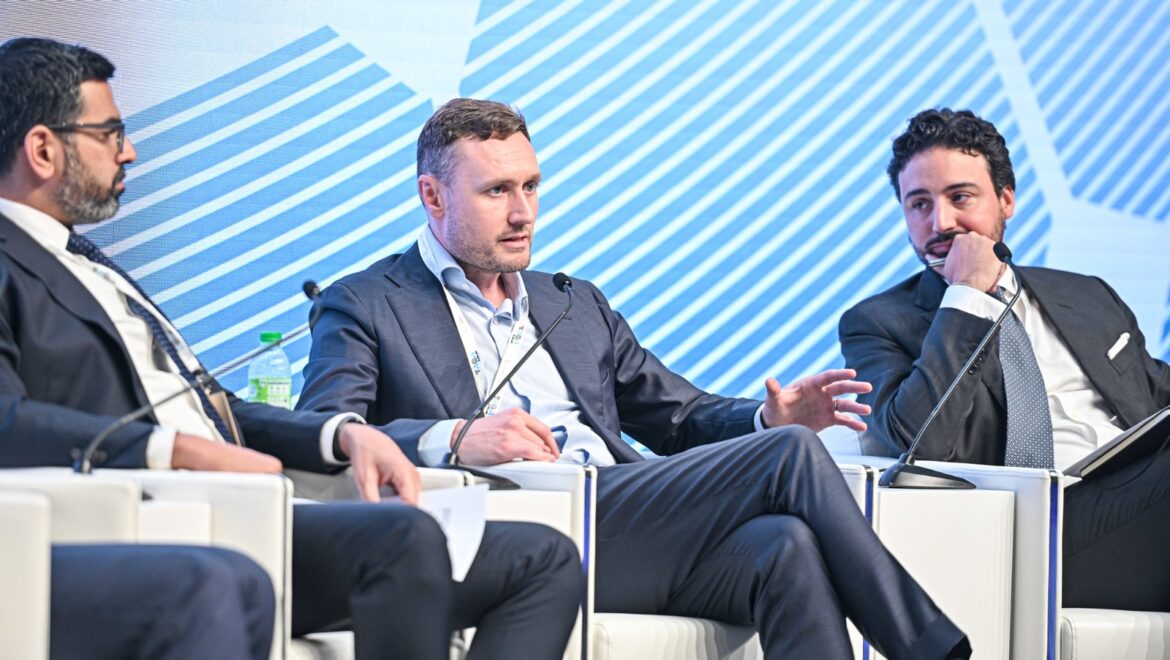On the second day of the World Future Energy Summit (WFES), of which ESG Mena is a proud media sponsor, green finance was in the spotlight.
The event, which runs until Thursday, 18 April, at the Abu Dhabi National Exhibition Centre (ADNEC), is hosted by Masdar and is now in its 16th edition.
Today, Bruce Johnson, Director of Corporate Finance and Treasury at Masdar, took to the stage in a panel entitled “Financing Global Approaches to Low Carbon Economies,” and called for the rulebook to be ripped up in order to course correct on climate change.
“If we as a planet want to prevent the average temperature from exceeding 1.5°C, I feel like we have to take lots of the paradigms of the social constructs we’ve become used to and throw them in the bin,” said Johnson.
Further, Johnson underlined that in order to “fix the problem,” every single dollar must go into fixing the issue.
“If you look at what governments around the world are spending today, just on defending themselves from other governments, it’s in the trillions. But we’re not spending that kind of money on fighting what I think is probably enemy number one: climate change.”
Johnson said that a militaristic approach is needed in terms of funding, and in terms of practicalities.
“We need to have almost an assembly line of cookie-cutter renewable energy projects, so we can get things done as quickly as possible. We have to sweep all of these things that we ordinarily think about to one side, otherwise, we’ll still be talking about this in 10 years’ time and we will not have fixed the problem.”
On day two, Marko van Waveren Hogervorst from the United Nations Industrial Development Organisation (UNIDO), the event’s Insights Supporter, also provided an overview of a new private equity fund focusing on early-stage, high-impact investments in Pakistan.
As the Private Funding Advisory Network (PFAN) Programme Manager at the Division of Decarbonisation and Sustainable Energy at UNIDO’s Climate Technologies Innovation Unit, van Waveren Hogervorst said the investment objective aligns with the dual purpose of achieving financial success while delivering a positive impact on the environment and society within the spectrum of low carbon projects.
“PFAN is a global operation set up to bring together groups looking for money that are unable to find it, and those with money looking for bankable small-scale investment projects,” he said.
Adding: “We’re trying to close that gap by offering capacity building to the entrepreneurs and small businesses, to help them with their business models and financial structure, and ultimately to facilitate investments into these companies.”
The 2024 Middle East Solar Industry Association (MESIA) Solar Outlook Report also launched on Wednesday, highlighting the growing contribution of solar in the MENA region’s energy transition journey.
It outlined that the MENA now has one of the world’s highest levels of solar energy potential, with countries such as Saudi Arabia, the UAE, Morocco, and Egypt contributing to average annual solar irradiance exceeding 2,000 kWh per square metre per year.
The same nations also helped ensure the region’s solar capacity increased by 23 per cent year-on-year in 2023.
This, however, is still significantly short of the necessary levels required to replace the current 87 per cent contribution of fossil fuels across MENA’s current power generation mix, currently providing a little over per cent.
At the Solar & Clean Energy Conference, Dr Ralf Blumenthal, Head of Grid Software Middle East & Africa at Siemens, commented: “If we are to triple renewables by 2030, and increase nine-fold by 2050, we need batteries,” he said. “And not purely for storage, we need them to regulate the grid and balance the intermittency that we see from renewable generation.”
“Everybody is talking about and investing in renewables, but we must solve inherent challenges for system operators.
Dr Blumenthal noted that while around 1,500 gigawatts of renewable energy globally are installed and ready to be dispatched, it cannot be integrated into grids.
“As far as I am aware, only a handful of smaller grids globally run 100 per cent on renewable energy. At large scale, it’s coming – it has to – but it means we fundamentally need to rethink how we operate these grids given we are so far behind reaching our targets.”
Tomorrow will see the inauguration of the eMobility Forum, which will examine how clean and autonomous transport will change city design, and what is needed to unlock investment potential for scaling up electric mobility.




